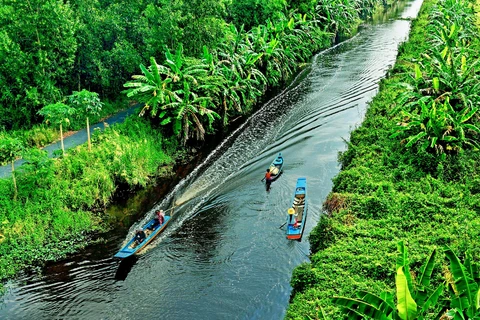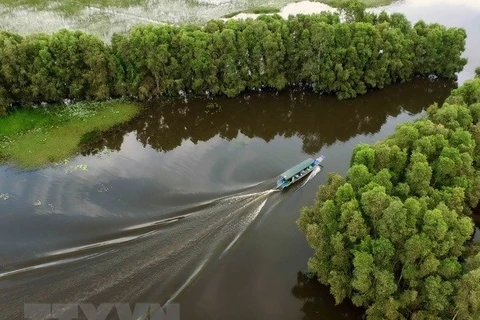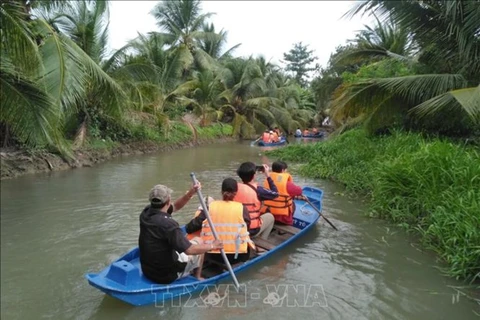 At the conference on responsible tourism held in the central province of Quang Nam’s Hoi An city on September 26. (Photo: VNA)
At the conference on responsible tourism held in the central province of Quang Nam’s Hoi An city on September 26. (Photo: VNA) The event was part of biodiversity conservation efforts under the Sustainable Forest Management and Biodiversity Conservation (VFBC) project funded by the United States Agency for International Development (USAID).
Gathering more than 50 leaders of localities, public managers, and travel operators, it aimed to raise awareness and understanding among responsible tourism entities regarding environmental conservation.
The event will also promote interdisciplinary participation and collaboration among forest rangers, the tourism sector, and private enterprises in a bid to reduce illegal wildlife consumption.
According to statistics from the Vietnam Tourism Association, the country currently has 33 national parks, 57 natural reserves, 13 species and habitat conservation areas, 53 landscape protection areas, and nine biosphere reserves. These are seen as a potential opportunity for tourism businesses to develop and promote distinctive tours tailored to each local region and area.
Hoang Hoa Quan from the Vietnam National Authority of Tourism affirmed that in order to make responsible tourism aligned with wildlife and nature conservation, tourism activities must both contribute to economic development and generate livelihoods and income for the community. They also need to play a role in safeguarding heritage values, preserving ecosystems, and reducing direct environmental pollution.
Deputy Director of the Quang Nam Department of Culture, Sports, and Tourism Van Ba Son said tourism businesses, visitors, and local communities must change their perceptions about traditional practices and the needs of tourists, particularly concerning hunting and consuming wildlife as food, decoration, or souvenirs.
Based on the analysis of the negative impacts and risks that wildlife faces due to certain tourism activities, participants proposed harmonious and sustainable solutions that avoid conflicts between economic interests and nature conservation./.
According to statistics from the Vietnam Tourism Association, the country currently has 33 national parks, 57 natural reserves, 13 species and habitat conservation areas, 53 landscape protection areas, and nine biosphere reserves. These are seen as a potential opportunity for tourism businesses to develop and promote distinctive tours tailored to each local region and area.
Hoang Hoa Quan from the Vietnam National Authority of Tourism affirmed that in order to make responsible tourism aligned with wildlife and nature conservation, tourism activities must both contribute to economic development and generate livelihoods and income for the community. They also need to play a role in safeguarding heritage values, preserving ecosystems, and reducing direct environmental pollution.
Deputy Director of the Quang Nam Department of Culture, Sports, and Tourism Van Ba Son said tourism businesses, visitors, and local communities must change their perceptions about traditional practices and the needs of tourists, particularly concerning hunting and consuming wildlife as food, decoration, or souvenirs.
Based on the analysis of the negative impacts and risks that wildlife faces due to certain tourism activities, participants proposed harmonious and sustainable solutions that avoid conflicts between economic interests and nature conservation./.
VNA
























